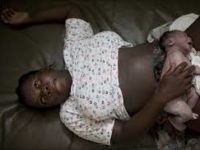 It’s a common misconception that if a woman has sex during her period she cannot become pregnant. While a woman is unlikely to get pregnant during her period, it is absolutely possible.
It’s a common misconception that if a woman has sex during her period she cannot become pregnant. While a woman is unlikely to get pregnant during her period, it is absolutely possible.
Defining a Period
“A period is defined as the blood loss that happens at the end of an ovulatory cycle, as the result of an egg not being fertilized by a sperm,” explains Michele Hakakha, M.D., a board-certified obstetrician and gynecologist based in Los Angeles and co-author of Expecting 411: Clear Answers and Smart Advice for Your Pregnancy.
“Every month, a woman releases an egg on approximately day 14 of her cycle,” Dr. Hakakha says. “Prior to the release of the egg, the hormones in a woman’s body increase to prepare (and thicken) the lining of the uterus in case the egg is fertilized and a pregnancy occurs. If there is no fertilization, the lining of the uterus is sloughed off about 14 days later. This is called your period.”
Most women have periods that last from two days to eight days and take place every 26 to 34 days. Ovulation (when an egg is released from one of your ovaries) typically occurs midway through the cycle and is the most fertile time in your menstrual cycle — meaning, when you are most likely to conceive.
“The egg that is released during the process of ovulation survives for only 24 hours,” explains Dr. Hakakha. “If it is not fertilized by a sperm during this time, it does not survive and comes out with all of the menstrual blood about 14 days later.”
Most women have normal 28- to 32-day cycles, and if someone with this cycle has an average two- to eight-day period, she will not get pregnant during her period.
Special Circumstances
However, not every woman follows a 28- to 32-day cycle. “In less common scenarios, a woman with a shorter menstrual cycle (24 days, for example), could have seven days of bleeding, have intercourse on her final day of bleeding, and ovulate three days later,” Dr. Hakakha says. “Since sperm live for three to five days, she could definitely get pregnant.”
In addition, some women experience breakthrough spotting or bleeding between periods. This can occur during ovulation and be mistaken for a period, making it difficult to establish the exact place in the menstrual cycle.
If you had unprotected sex during your period and are concerned that you may be pregnant, look out for symptoms like mild lower abdominal cramping, spotting (implantation spotting, a fairly common cause of bleeding once the egg has been fertilized), breast tenderness and moodiness. These symptoms can occur as early as two weeks after ovulation.
Other, more common, pregnancy symptoms to watch out for will manifest closer to six or seven weeks’ gestation, and include nausea, vomiting and severe fatigue.




